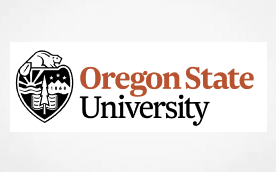Since its inception in 2019, Oregon State University’s Global Hemp Innovation Center has prioritized building strong relationships with rural businesses including Native American tribal partners throughout the region.
Starting with its first USDA grant in 2021, that work has included the development of new trainings specifically to educate faculty on historical context and best practices for respectfully working with tribes, to ensure that the center can effectively partner with and support tribal businesses and entrepreneurs.
“Right up front, part of our values with the Global Hemp Innovation Center was to be able to provide engagement, support and help for all types of folks going into the hemp business, from small farmers to large multi-generational farmers,” center director Jeff Steiner said. “With each of our grants, we wanted to make sure we were addressing the needs of industry in Oregon and beyond, and we also wanted to be inclusive of underrepresented groups.”
The Global Hemp Innovation Center(Link is external), based within OSU’s College of Agricultural Sciences, is a multidisciplinary research center devoted to the study of hemp and its many commercial applications, and supports more than 70 affiliated faculty across eight colleges at OSU.
Some of the first hemp-related businesses in the region were started by tribal members because they were the first to get permissions from the federal government to work with hemp after it was legalized in 2018, said Anne Sinkey, director of the Center for Advancing DEI in Business in OSU’s College of Business.
Sinkey crafted the new training materials in close collaboration with the center’s tribal liaison Doug Boon, CEO of Native American business development firm 7 Generations, LLC(Link is external); and Laurie Arnold(Link is external), director of Native American studies at Gonzaga University.
“We want to make sure that all of the non-Native researchers, many of whom may have never set foot on a reservation, have shared knowledge of respectful partnership-building, respect for tribal sovereignty, and a baseline level of historical context for each tribe,” Sinkey said.
The trainings were created for faculty associated with the USDA grants the hemp center has received, but are available to everyone. The first module was released in late 2022, and all are shared with grant-affiliated staff as they become available and with new staff when they first join the center. The materials will also be shared with the USDA Abraham Lincoln National Agricultural Library in the Washington, D.C., area.
The three sessions so far are:
- Creating Respectful Native American Tribal Partnerships(Link is external)
- Tribal Sovereignty: A Context for Respectful Engagement(Link is external)
- Tribal Partners: Cultural, Historical and Environmental Contexts(Link is external)
As sovereign nations, tribes have unique opportunities when it comes to commerce and trading, Sinkey said, but they also must contend with unique barriers, such as the way the federal government has leased traditional tribal lands to non-tribal entities in a checkerboard pattern, often blocking tribes from using their own land in productive ways.
“There are legal precedents and federal laws that non-Native folks aren’t aware of, that are different for tribes to deal with than for non-tribal businesses,” she said.

In August 2024, the Global Hemp Innovation Center held a workshop(Link is external) where Native American hemp industry leaders were able to meet with Aotearoa Māori hemp industry leaders from New Zealand. Photo courtesy Jeff Steiner.
Coming from the academic world, Sinkey said, non-Native researchers are accustomed to being seen as experts, so a major component of the center’s trainings is the importance of humility.
“It’s important to have respect for Indigenous ways of knowing and traditional ecological knowledge, and just an awareness that the tribes know their needs and what will and won’t work for them,” she said. “We really want to come from a place of trying to learn and empower, rather than coming in to instruct folks.”
The latest $10 million grant included the creation of an inter-tribal business council, whose members are involved in the decision-making of what work should be prioritized within the Global Hemp Innovation Center and whom it will benefit, Steiner said.
“We built our proposal around the priorities of our tribal partners and now we regularly interact with these business leaders. We’re helping them, like all our private partners, understand how to take advantage of our university programs and services, just as we’re learning about what they have to offer and what their priorities are,” Steiner said. “We’re just learning more about our neighbors.”


















